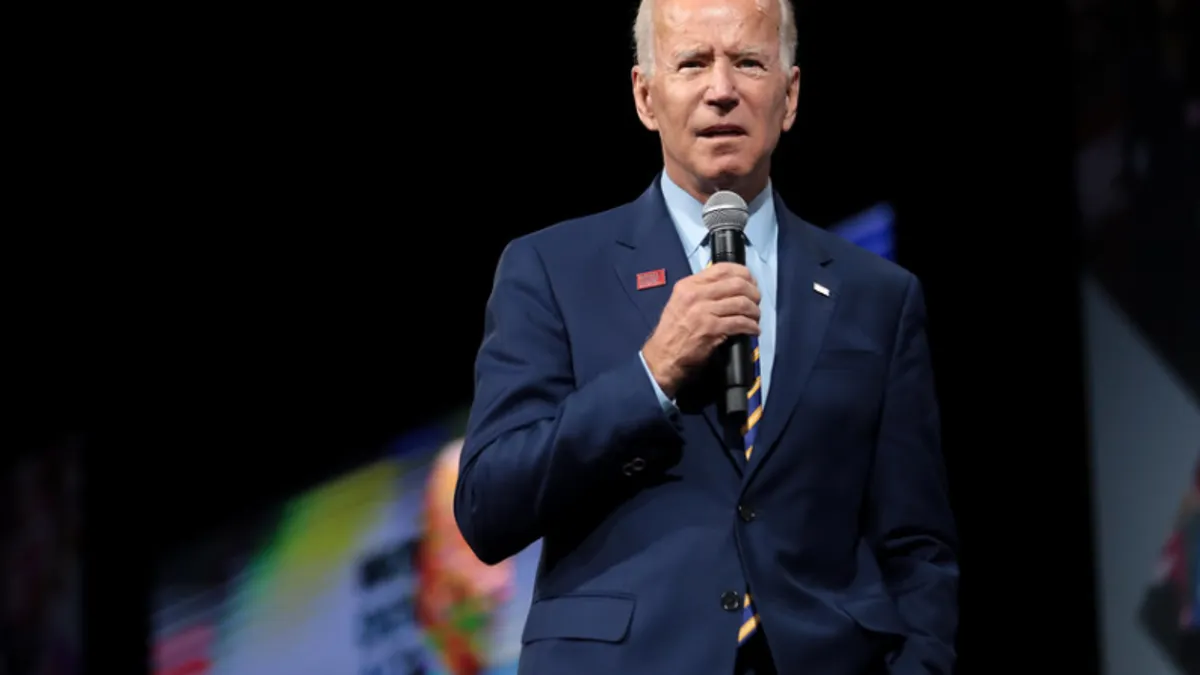Dive Brief:
- The continued damage from the SolarWinds hack "remains to be determined," President-elect Joe Biden said in a press conference Tuesday.
- The investigation will continue with damage assessments, an "autopsy of how it happened," and the international norms of responding, Biden said.
- Though the Department of Defense has not yet briefed the transition team, Biden said the U.S. will "respond in kind" to the hack's perpetrators as recovery "will be an overwhelming focus for my administration." Moving forward, Biden's security-related nominations thus far have experience in the cyber realm, which security experts expect to influence how the government treats cyber in all future administrations.
Dive Insight:
As Biden prepares to take office in January, his administration is facing one of the largest hacks on federal agencies in recent years. Last week Biden released a statement saying it will make "dealing with this breach a top priority from the moment we take office."
Federal officials are attributing the hack to Russia. Former CISA director Chris Krebs said the hack "has all the hallmarks of a very sophisticated Russian Foreign Intelligence Service operation," during an interview on "Morning Joe" Wednesday.
As the government and private companies work to "root out" the extent of the compromise, Krebs said "you've got to start from a position of accepting what happened before you can really fix it," acknowledging the attack occurred under his leadership.
As the investigation continues, Krebs expects the U.S. will find it was "a human-powered operation," and it may not be as deep as initially thought. One of Biden' primary tasks will be building a robust federal cyber mission.
Biden will fill the role of CISA director, after President Donald Trump terminated Krebs on Twitter in November. Reports suggest Chris Inglis, professor of cybersecurity studies at the U.S. Naval Academy and a member of the Cyberspace Solarium Commission, is a front-runner for the position.
The Biden administration is expected to adopt a national cyber director role in the White House to coordinate cybersecurity efforts throughout the government and private industry. Trump eliminated the White House cyber head in 2018, which pushed cybersecurity to a lower priority in the federal government.
Biden said the U.S. has to treat cyberthreats "with the same seriousness of purpose that we treated threats of other unconventional weapons."














